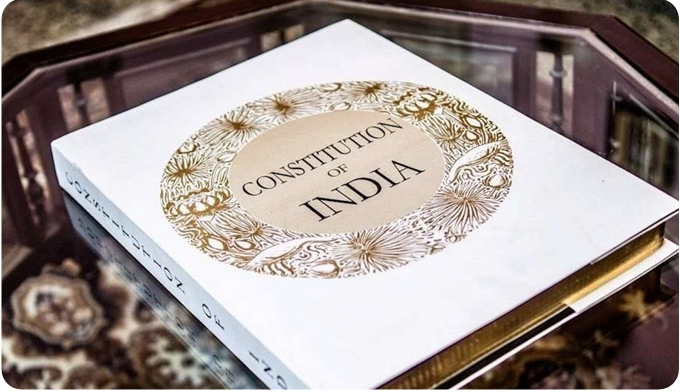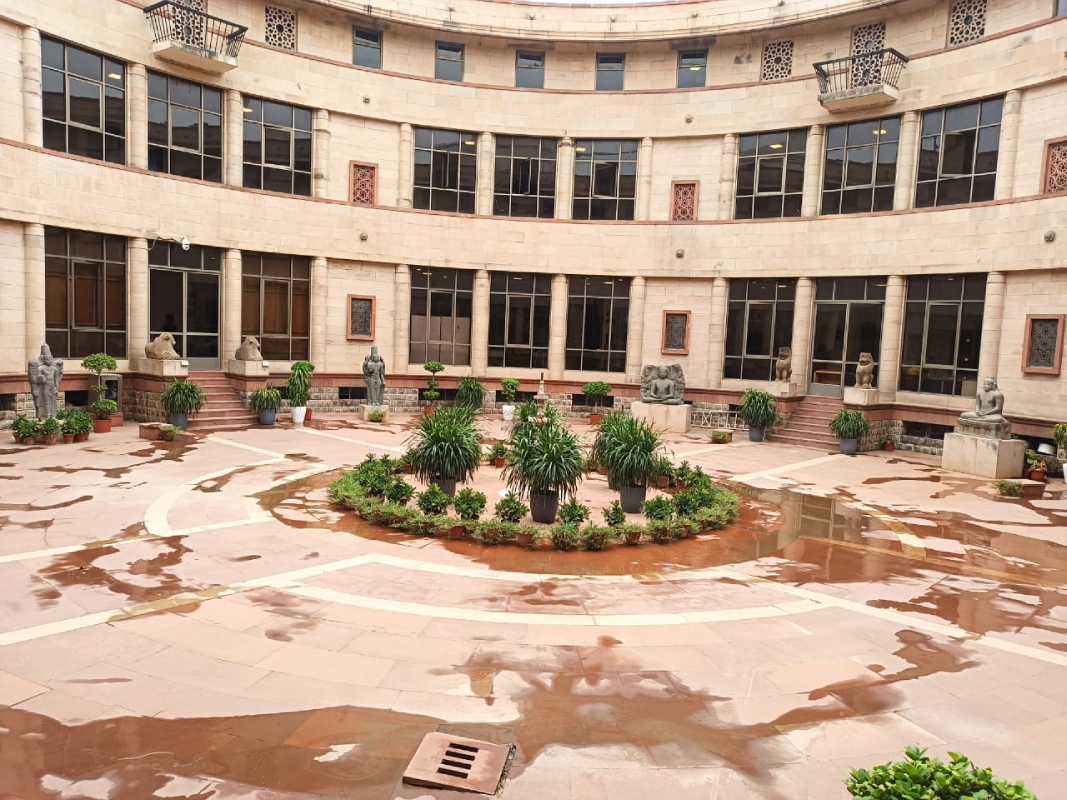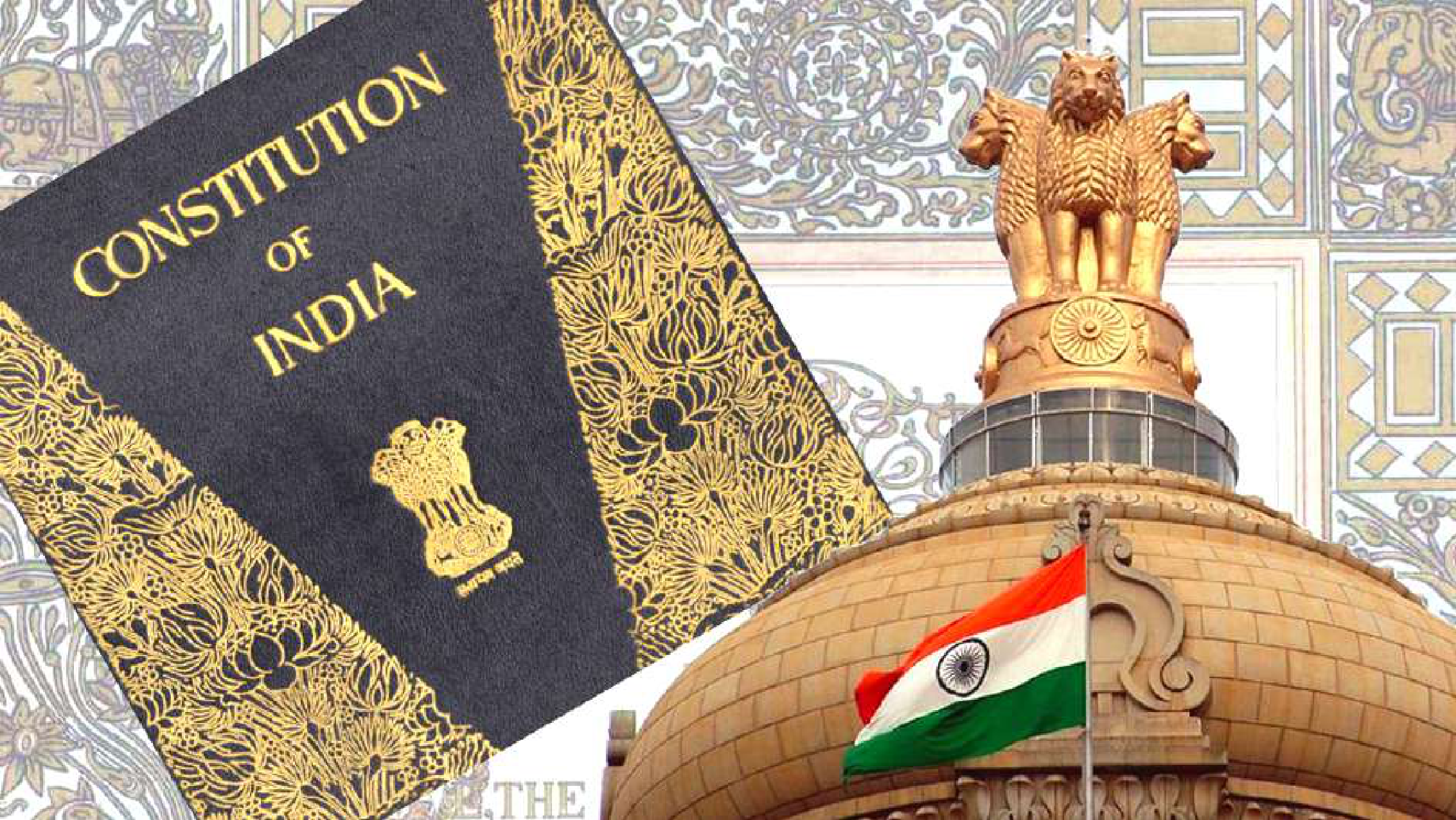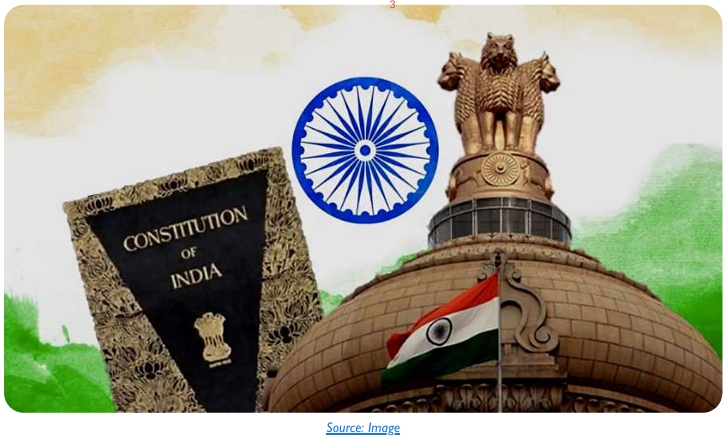Executive Domination over the Judiciary
The 39th Constitutional Amendment, 1975
In June 1975, the Allahabad High Court invalidated Indira Gandhi’s 1971 election on grounds of electoral malpractice, barring her from elections for six years. Indira Gandhi reacted by proclaiming emergency, and the Parliament used its amending power to pass the 39th constitutional amendment. This amendment introduced Article 392A to the Constitution which prevented the questioning of the election of the Prime Minister and the Speaker in any court of law and allowed it to only be challenged before a committee formed by the Parliament. The constitutional validity of the 39th amendment was challenged in the Indira Nehru Gandhi v. Raj Narain case in 1975, where the court held that, by excluding judicial review, the Amendment violated three essential features of the constitution: fair democratic elections, equality, and separation of powers, and therefore was invalid.
National Judicial Appointments Commission Act, 2014
The National Judicial Appointments Commission Act, 2014 was introduced with the 99th Constitutional Amendment. The current collegium system was to be replaced by the NJAC which was to be comprised of 6 members, which included the CJI, 2 senior-most judges, the Law Minister and 2 more eminent members. However, the NJAC would result in appointments having too much reliance on the executive and therefore had the potential of undermining judicial independence. Consequently, in the Supreme Court v Union of India case in 2015, the NJAC Act and the 99th Constitutional Amendment was struck down by the SC on grounds of violation of the basic structure of the constitution.
Arbitrary Use of Ordinances Has Increased
Article 123 of the constitution provides the President with ordinance-making powers when Parliament is not in session, if urgent circumstances exist which require immediate action. The Executive is required to lay ordinances before the reconvened legislature. While it is clear that promulgating ordinances is supposed to be an exceptional emergency power, since there is no explicit mention of circumstances that justify ordinances, various governments have routinely misused these powers. In 2017 the SC held that the Executive’s power to promulgate ordinances was subject to judicial review, and the Courts could evaluate whether the use was legitimate or based on ulterior motives. Despite that, in 2020 the central government promulgated 14 ordinances, which were not limited to urgent matters, such as ordinances on salaries and allowances for members of Parliament which indicated a clear misuse.
Violation of the Fundamental Right to Equality
The Bihar Sathi Land (Restoration) Act, 1950
In 1946 the SC had granted a land lease to inhabitants of a settlement in Bihar. In response, there was an agitation by the tenants of the locality against the lease and the matter was referred to the Congress Working Committee. The Congress Committee took the view that the settlement was illegal, and the lessees were asked to vacate the land. The lessees however refused and consequently, the Bihar Legislature passed the Bihar Sathi Land (Restoration) Act, 1950, which cancelled the lease. However, in 1953 the SC passed a judgment in the Ram Prasad v State of Bihar case which held the Bihar Sathi Land (Restoration) Act, 1950 invalid on the ground that act violated the principle of equality before law.
The Hindu Succession Act, 1956
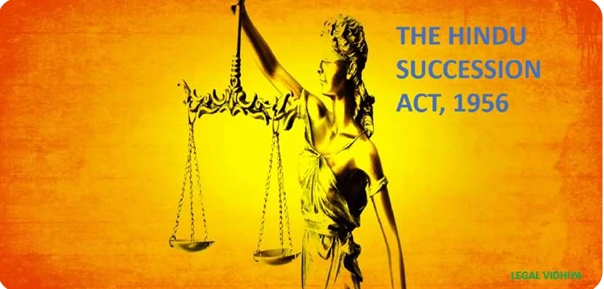
The Hindu Succession Act of 1956 dealt with the succession and inheritance of ancestral properties, according to Hindu law. As per the original Act (now amended), it provided that in case a person dies without a will, ancestral property must only be acquired by male descendants of the person in a joint Hindu family.
Though women had an absolute ownership over their own property, as per this Act, they could not claim rights over ancestral property. Thus, this Act, in its original form, by differentiating between sons and daughters, was discriminatory towards women (daughters), and was in direct violation of articles 14 and 15 of the Constitution.
Section 497 of the Indian Penal Code
The enactment of the law for adultery in India dates back to colonial times when the Indian Penal Code was enacted in 1860. Adultery was criminalised under Section 497 of the IPC. Over the years the criminalisation of Adultery was questioned by various women’s rights activists and lawyers. The issue with section 497 was that, while its purpose was to criminalize adultery, it only considered sexual intercourse between a married woman and another man (married or unmarried) as adultery. If a married man engaged in sexual intercourse with an unmarried woman, it was not considered adultery. Thus, the law discriminated against married women and violated articles 14 and 15. In 2018 the SC, in the Joseph Shine v UOI case finally held section 497 to be unconstitutional.
Section 377 of the Indian Penal Code
Section 377 of the IPC criminalized certain sexual acts which were deemed unnatural which led to the criminalization of homosexuality in India. In 2014, in the National Legal Services Authority v. UOI case, the SC held that the right to express one’s identity in a non-binary gender was an essential part of freedom of expression. The NALSA case, ultimately led to the 2018 Navtej Singh Johar v. UOI judgment, where the SC struck down certain aspects of sec 377, declaring that it undermined the principle of equality and was unconstitutional. The court held that an LGBT person’s decision to engage in intimate sexual relations with people of the same sex was an expression of his/her autonomy. This judgment led to the decriminalization of homosexuality in India.
Violation of the Fundamental Right to Liberty
Habeas Corpus Case, 1976
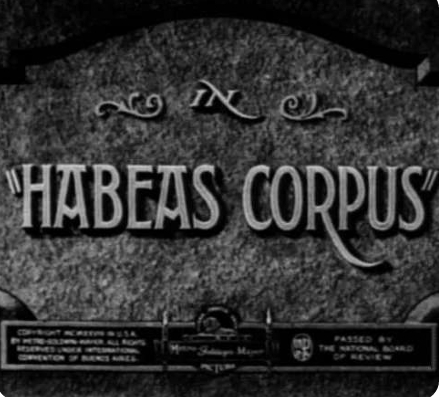
On 25th June 1975, on advice of Prime Minister Indira Gandhi, the President of India declared Emergency. At the time many politicians and activists, were detained under the Maintenance of Internal Security Act, 1971. The detainees approached various High Courts to issue the Writ of Habeas Corpus. The government, in response to high court judgments, approached the Supreme Court in the ADM Jabalpur v. Shivkant Sharma case (popularly known as the Habeas Corpus case) to question the use of habeas corpus during emergency. Four out of five judges ruled in favour of the government and denied habeas corpus. This judgment is considered one of the darkest moments of the Indian judiciary where the SC failed to fulfill its primary duty of protecting the right to life and liberty. In 2017, the Supreme Court, in the K.S. Puttaswamy v. UOI case, overruled the SC judgment in the ADM Jabalpur case.
Misuse of The Unlawful Activities (Prevention) Act
The Unlawful Activities (Prevention) Act is India’s primary anti-terrorism legislation. It was enacted in 1967 and has been amended several times since, most recently in 2019. Prior to the 2019 amendment, the UAPA enabled the notification of an organization as a terrorist organization. The 2019 amendment gave the central government the power to arbitrarily designate individuals as terrorists. While the framework under which the trial of a UAPA accused was conducted was already draconian, the inclusion of individuals further undermines the right to personal liberty under article 21. This has led to various instances of people being booked under UAPA on frivolous grounds which are not related to terrorism. For e.g. in October 2021, the J&K Police booked students and staff of two medical colleges under the UAPA for allegedly cheering for Pakistan, when it won a T20 World Cup match against India.
Wrongful Detention of Journalist Mohammed Zubair, 2022
Mohammed Zubair, journalist and co-founder of Alt-News, a fact-check website, was arrested by the Delhi Police in June 2022, on charges of posting an allegedly objectionable tweet in 2018. He was arrested from his residence in Bengaluru and brought to Delhi to join an investigation based on a complaint filed in 2020. He was remanded to a day’s police custody which was extended by four days. Then he was sent to judicial custody for 14 days. The SC granted him interim bail for 5 days, however, there were 6 different FIRs against him in different places across UP, each of which ordered a 14-day judicial custody. Ultimately, the Supreme Court granted him bail in all 6 cases on 20th July 2022, nearly a month after he was arrested, calling the FIRs a vicious cycle of police action. This vicious cycle of police action was a clear case of violation of his right to liberty under article 21.
Excessive Internet Shutdowns by Central and State Governments
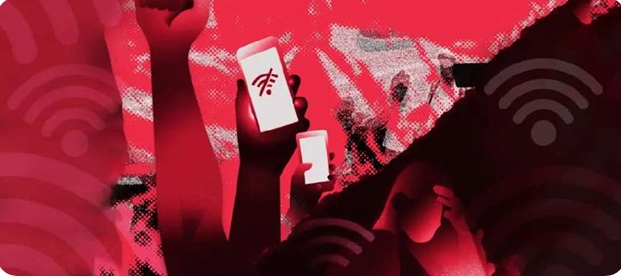
Access to the Internet is crucial for citizens to exercise their freedom of speech, but in recent times the central and state governments have frequently restricted internet access. In 2017 new rules were issued under the Indian Telegraph Act which placed the powers for issuing internet shutdowns with the Home Secretary in each state, allowing for a great degree of arbitrariness. Since then, the number of shutdowns has increased, and in 2020 India had the highest number of shutdowns worldwide at 109, severely undermining freedom of speech. In January 2020, the Supreme Court ruled in the Anuradha Bhasin v UOI case, that freedom of speech through the medium of the internet was protected under the constitution. The Court laid down guidelines to limit Internet suspensions under the Telegraph Act. The Court also held that any government-imposed restriction on Internet access is subject to judicial review.
Violation of the Fundamental Right to Life
Hyderabad Extra Judicial Killing by Telangana Police, 2019

On November 29, 2019, four persons were arrested in connection with the rape and murder of a woman in Hyderabad. On December 6, 2019, it was reported that the suspects were killed when they attacked the police. A Commission of inquiry was constituted by the SC to investigate the matter. In a 387-page report, the Commission called the episode a case of fake encounter. It also found that the police deliberately attempted to suppress the fact that three of the deceased were minors. The report finally recommended that the ten police officers, involved in the encounter, be tried under Section 302 for murder. The Hyderabad fake encounter case was a gross violation of Article 21 of the Constitution. The right to life of every person is sacrosanct and protected by the Constitution even if they are suspected of committing a crime.
Custodial Death of P. Jayaraj and J. Bennick by Tamil Nadu Police, 2020
On 19 June 2020, in Sathankulam, Tamil Nadu, the police arrested P. Jayaraj and his son J. Bennicks for violating covid lockdown regulations. Following the arrest, they were tortured in police custody and succumbed to their injuries a few days later. The deaths sparked massive outrage in Tamil Nadu. Subsequently, the Madras High Court took suo motu cognisance of the case and ordered the Superintendent of Police to inquire into the incident. On 28 June, the Tamil Nadu CM directed the probe to be handed over to the CBI. During the investigation a chargesheet was filed against 10 police officials who were arrested. The chargesheet showed that the police officers tortured Jayaraj and Bennicks and inflicted several injuries which led to their deaths. This was in complete violation of the most fundamental aspect of the constitution.
Shopian Fake Encounter Case, 2020
In July 2020, it was reported by the media that three militants had been killed in an encounter in Shopian, J&K on the intervening night of July 18 and 19. The J&K police instituted a special investigation team to look into the matter which identified the deceased as Abrar Ahmed (25), Imtiyaz Ahmed (20) and Mohammed Ibrar (16). On December 28, 2020, the SIT filed a chargesheet against Captain Bhoopendra Singh which identified the three as labourers and stated that the Army captain and the two civilian accomplices first abducted the labourers, took them in a vehicle to a secluded spot and shot them dead. It was also stated that the captain planted weapons and materials on the victims to brand them as terrorists. The motive was to claim Rupees 20 lakh, which was given as a reward by the Indian army for killing militants in J&K. This fake encounter goes against the very heart of the Fundamental Rights.
Custodial Death of Ravi Jadav and Sunil Pawar by Gujarat Police in 2021
On 22nd July 2021 four police officials were booked for murder in connection with the custodial death of two 19-year-olds in Gujarat. The incident took place in Chikhli police station where the two youths were found hanging from an electric cable. Senior Police sources said that they were suspected of vehicle theft and were brought to the police station for interrogation. However, they were not arrested on record and were detained without informing their families. The postmortem was conducted under the panel of five doctors. Upon further investigation, the four policemen were booked for murder, and under relevant sections of the Scheduled Castes and the Scheduled Tribes (Prevention of Atrocities) Act. This was a case of police atrocity where the most fundamental of all rights, the right to life, was taken away from youths who had their entire lives ahead of them.
Bulldozing of Houses by the Khargone District Administration in Madhya Pradesh, 2022

In April 2022, Ram Navami celebrations in Khargone, MP led to communal violence. In the aftermath the District Administration undertook a demolition drive of homes and establishments largely owned by members of the minority Muslim community accused of inciting the violence. The District Collector had stated that the drive was undertaken to send the rioters a message. The SC, in various judgments, has interpreted the right to life to include the right to shelter, and has recognized two entitlements under this right: the right of persons to be affected by eviction to be issued notice, and the right to rehabilitation. However, in Khargone, while some affected persons were not served any notice, several others were served notices without enough time to respond. Further, no efforts were made to rehabilitate affected persons. This was in direct violation of the constitutional safeguards established by the court.
Violation of the Preamble Value of Secularism
Shah Bano Case, 1986
Shah Bano Begum was a Muslim woman married to Mohammad Ahmed Khan since 1932. In 1975 Mohammed Khan divorced Shah Bano and expelled her from their home. Thereafter, Shah Bano received maintenance from her husband for a period of two years, after which it stopped. Consequently, in April 1978, she filed a petition in a court in Indore, demanding further maintenance, however, Mohammed Khan contested the claim on the grounds that the Muslim Personal Law limited the payment of maintenance only till the period of iddat, which was usually three months. In April 1985, the Supreme Court upheld the decision of the High Court that ordered the payment of maintenance to Shah Bano. However, the Central government passed the Muslim Women (Protection on Divorce) Act, 1986, essentially overturning the Supreme Court verdict thereby undermining secularism.
Violation of the Preamble Value of Social Justice
The Habitual Offenders Act, 1952
In colonial India, through the enactment of the Criminal Tribes Act of 1871, around 200 tribal communities across the country were notified as criminal tribes who were considered to be habitual criminals. Five years after independence, the Criminal Tribes Act was repealed in August 1952. but the union government enacted the Habitual Offenders Act. While the Habitual Offenders Act did not apply to entire communities, in the implementation of the Act, the stigma of criminalisation and the targeting of these communities continued. Today, stripped of their fundamental right to justice, equality, and freedom, these communities continue live in fear of the authorities. This act has undermined the basic principle of social justice, and the National Human Rights Commission has recommended repealing it.
The Bombay Prevention of Begging Act, 1959
In India twenty states and two union territories had criminalized the act of begging modeled on the Bombay Prevention of Begging Act of 1959. Over the years the provisions as well as the implementation of these anti-begging laws had been highly arbitrary with numerous raids in public places, which led to the arrest of many poor, homeless and disabled people. The notion of criminalizing poverty and treating the disabled, destitute and marginalized as convicts undermined the idea of social justice. In 2018 the Delhi HC held the Bombay Prevention of Begging Act, 1959 to be unconstitutional on grounds that it violated Articles 14 and 21 of the Constitution.
Continued Employment of Manual Scavengers by Government Bodies
India’s central government since independence in 1947 has adopted legislative and policy measures to end manual scavenging. However, because these policies are not properly implemented, the practice continues to be widespread across the country, including within government bodies. In the Delhi Jal Board v. National Campaign for Dignity & Rights of Sewerage and Allied Workers case in 2011, the Supreme Court passed a judgement emphasizing the plight of sewage workers who were being deprived of their fundamental rights. The continued existence of manual scavenging highlights the state’s neglect of laws banning manual scavenging and deeply undermines the constitutional notion of social justice.
Violation of the Principle of Federalism
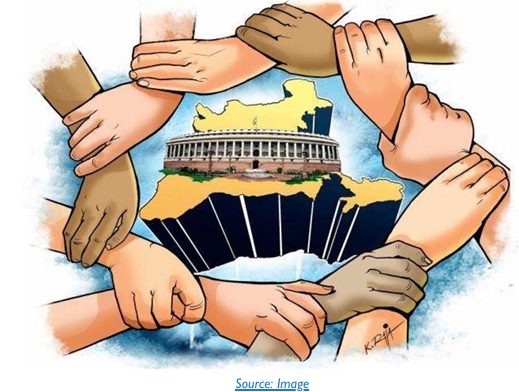
The Industries (Development and Regulation) Act, 1951
In 1951 the Parliament passed the Industries (Development and Regulation) Act specifying those industries, which were to be the controlled by the centre in national interest. The Act originally was fair and reasonable, and gave the centre control over vital and strategic industries. However, in course of time, more and more industries were brought within the purview of the Act leading to the Union’s control over a very large number of industries. The Constitutional effect was that the power of the State Legislatures with respect to the subject of ‘Industries’ under Entry 24 of the State List, was curtailed undermining the principle of federalism.
The Dismissal of The SR Bommai (Janata Dal) Government by the Karnataka Governor in 1989
S.R. Bommai was the Chief Minister of the Janata Dal government in Karnataka between August 13, 1988 and April 21, 1989. His government was dismissed on April 21, 1989 under Article 356 of the Constitution. The dismissal was on grounds that the Bommai government had lost majority following large-scale defections. The then Governor P. Venkatasubbaiah refused to give Bommai an opportunity to test his majority in the Assembly. To challenge the decision of the Governor, Bommai first moved the Karnataka High Court and then the Supreme Court. On March 11, 1994, the Supreme Court issued a landmark judgment which put an end to the arbitrary dismissal of State governments under Article 356 by providing certain restrictions.
Dismissal of the Kalyan Singh Government in Uttar Pradesh in 1998 by the Governor
In Feb 1998, the Kalyan Singh led BJP government in UP lost the majority after Janata Dal and Loktantrik Congress MLAs withdrew their support. Thereafter, Governor Romesh Bhandari dismissed the government and installed Loktantrik Congress’ Jagdambika Pal as the new CM of the state. However, the decision was challenged by Kalyan Singh in the Allahabad HC. The court ordered a floor test to determine the real CM, and after 3 days Kalyan Singh was reinstated as the CM and Jagdambika Pal had to resign. This was a clear case of misuse of powers by the governor and undermined federalism.
Installing of Shibu Soren as CM of Jharkhand in 2005 by the Governor Despite not having Majority
In 2005 after the elections, Governor Syed Sibtey Razi installed Jharkhand Mukti Morcha’s Shibhu Soren as the new CM of Jharkhand, despite the NDA claiming the support of 41 MLAs in the 80-member assembly. The matter reached Supreme Court which ordered a floor test. Subsequently Shibu Soren failed to prove his majority in the house and BJPs Arjun Munda was sworn in as the CM of the state. This was a case of misuse of powers by the governor which undermined the federal principle of the constitution.
Imposition of President’s Rule in 2016 in Uttarakhand
In March 2016 in Uttarakhand, 9 members of the Harish Rawat led Congress government, demanded a vote on an appropriation bill, but the speaker refused and passed the bill by a voice majority. This led the 9 MLAs to rebel and join hands with the opposition, and demand the dismissal of the Congress government. The Governor gave the CM till 28th March to prove his majority. However, before the floor test, much political turmoil ensued, and on March 27 article 356 was imposed. To end the political uncertainty the SC asked CM Rawat to face a trust vote on May 10. The SC also held that the Assembly could not be dissolved, but only kept in temporary suspension, until both houses of the parliament approved the President’s Rule. After the floor test the Congress Government was ultimately reinstated and the President’s Rule was revoked. As noted by the SC, this was a case of misuse of Article 356.
Imposition of President’s Rule in Arunachal Pradesh in 2016
In 2016 in Arunachal Pradesh 21 MLAs of the ruling congress party joined with the BJP and rebelled against chief minister Nabam Tuki. While the Congress had won the 2014 state elections, there was alleged dissatisfaction with the Chief Minister. The anti-Tuki faction communicated their wish to form a government before the governor, and in an emergency assembly session the speaker was impeached. In response, the speaker disqualified the 21 MLAs on grounds of defection. Thereafter, on grounds of failure of Constitutional machinery, President’s rule was imposed and the Congress government was dismissed. The Congress, challenging the Governor’s actions, moved the Supreme Court. In July 2016, the SC quashed the governor’s order calling it illegal and re-instated the Congress government.
Lakshwadeep Panchayat Regulations, 2022
In 2022 the Administrator of Lakshwadeep introduced the New Lakshwadeep Panchayat Regulations 2022 replacing the Lakshadweep Panchayat Regulations of 1994. Considering the territorial sensitivities of the islands, the LPR 1994 had a clear mention of the areas that could be declared as panchayat areas. Hence no arbitrary proclamation of a panchayat areas was possible. However, the LPR 2022 brought about a drastic change by giving the administrator power to constitute panchayat areas through a notification, as s/he saw fit, without considering the territorial sensitivities of the islands. In April 2023 the Kerala high court ordered the Lakshadweep administration to withdraw notifications in relation to LPR 2022, saying they were in contravention of relevant provisions of the Constitution.
Demand for Resignation of Vice-Chancellors of Nine Universities by Kerala Governor in 2022
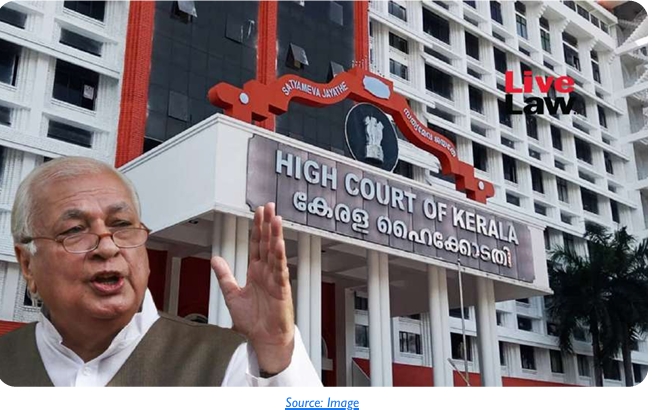
In October 2022 the Kerala Governor asked the vice-chancellors of nine universities to tender their resignation within 24 hours due to discrepancies in the selection process. Subsequently, when the VCs refused to resign, the Governor issued show cause notices requiring them to respond on their right to continue in office. Thereafter, the V-Cs moved the Kerala High Court, and were allowed to continue in their posts until the governor passed a final order. The High Court also stated that, “It does not require much judgment to say no one can be asked to tender resignation. And what was the hurry in issuing the letter? That is also troubling”. Many legal experts questioned the haste in issuing the first notice demanding their resignation, calling it a misuse of Governor’s powers as Chancellor.
Telangana Governor Withholding Assent of 10 Bills in 2023
In March 2023 the Telangana Government filed a petition in the SC alleging delay by the Governor in giving her assent to 10 bills passed by the state assembly, some of which had been pending since September 2022. In the hearing the SC observed that bills sent to the governor must be returned as soon as possible and State Assemblies should not be made to wait indefinitely. The court also added that the expression ‘as soon as possible’ had significant constitutional content and must be taken seriously by constitutional authorities. This is a case of a Governor misusing her discretionary powers and undermining the federal character of the constitution. The National Commission to Review the Working of the Constitution and the Puncchi Commission have previously called for amendments prescribing a time limit by which Governors must give their assent to remove the possibility of such misuse.
Violation of the Spirit of Democracy
Declaration of National Emergency in 1975
On 25th June 1975, the President of India, on advice of Prime Minister Indira Gandhi declared a national emergency. This was done after the Allahabad HC invalidated Indira Gandhi’s 1971 election on grounds of electoral malpractice, barring her from elections for six years. With the proclamation of Emergency, Article 359 (later amended by the 44th Constitutional amendment) was activated which allowed the President to suspend the right to move any court for the enforcement of fundamental rights during emergency.
The Emergency led to a wide scale abuse of power with the Maintenance of Internal Security Act, 1971 being used to arrest a large number of political opponents. Emergency was finally revoked after 21 months on 21st March 1977. In 2020, the Supreme Court said that the 1975 Emergency should not have happened. This period is widely considered one of the darkest phases of Indian democracy.
Addendum: The Constitution Under Attack at 69[1]
As we approach the Republic Day (26 January, 2019), marking 69 years of the adoption of the Constitution of India, there is a palpable sense of fear that this foundation of our country’s republican democracy is under severe threat – from the ruling govt. itself. In the past nearly five years, the Narendra Modi led BJP govt. has systematically subverted the Constitution and its many pillars, be it the Supreme Court, the Parliament, the democratic election and governance system, the role of various watchdogs like the CBI or the CVC, the Reserve Bank of India, Election Commission, CBI, CIC etc. have had to deal with political rulers wanting to misuse or even subvert them. But never before has such a sweeping disregard for the Constitution been experienced at this scale, except perhaps the 19 months of Emergency in 1975-77.
We give below some of the most flagrant examples of Modi’s attempts to subvert the Constitution through attacks on institutions.[2]
Bypassing Parliament
After getting a comfortable majority in Lok Sabha, the BJP and its allies have treated the Parliament as a tool for propaganda only and often downgraded or by passed its sovereign authority. The Constitution recognised the Parliament as the supreme expression of the people’s will. But Modi and his govt. treats it like a nuisance. For example, the 2018 Union Budget was bulldozed through the Parliament without any debate. It was for the first time since Independence that this happened. A no confidence motion was disallowed, and the session was adjourned by the Speaker who belongs to the ruling party BJP. The motion to impeach the Chief Justice was unilaterally dismissed by Chairperson of the Rajya Sabha, even though he had no powers to decide on the merits of the motion. Earlier, the govt. had ‘passed’ the Aadhar related laws too by a sleight of hand, smuggling them in with finance bills at the last minute. Another trick used to bypass the Parliament is the systematic use of ordinances to bring in laws that it feared would be opposed. The ordinance on Land Acquisition was one such which had to be taken back after massive resistance from the farmers in 2015. Ordinances on allotment of Rajya Sabha seats between Telangana and Andhra Pradesh, textiles, re-promulgation of coal mines ordinance and for appointment of Principal Secretary to the PM are other such examples where the institution of Parliament and its democratic functioning has suffered damage.
Interfering with Supreme Court
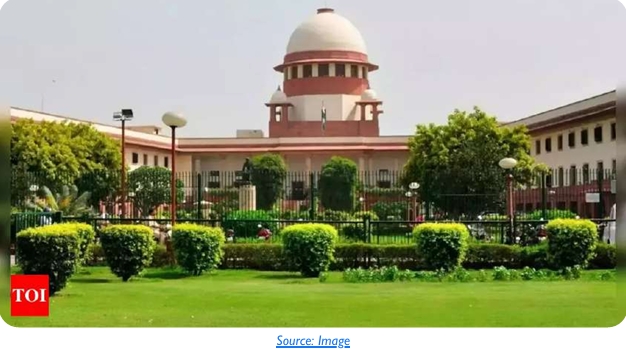
In January 2018, four Supreme Court judges took an unprecedented step of holding a press conference to voice their protest against arbitrary allocation of cases to benches by the then Chief Justice of India. The real issue was that the CJI was allegedly distributing cases to different Benches to suit the Modi government. The rebel judges wanted transparency and accountability so that this perversion in the functioning of one of the pillars of Indian democracy could be ended. They also wanted certain cases to be probed or carried forward, which seem to have got side-lined due to the struggle between the court and the government on appointments.
Eroding autonomy of the RBI
In the Modi era, severe friction has emerged between the RBI and the Union govt. The previous governor’s term was not renewed as Modi feared that he would not be pliant enough. But the new governor Urjit Patel too resigned midway. A deputy governor came out openly against repeated interference by the govt. There were several friction points including policy issues and the desire of the Modi govt. to set up a separate payments regulator and the most important one of the govt.’s desire to take more and more funds from the RBI reserves to pad up its balance sheet. While ultimately, the RBI needs to heed the govt. and the Parliament, the resistance was to be destroying it altogether and using it as a treasure chest in the run up to the general elections.
Earlier, in 2016, the country had watched with shock as the disastrous demonetisation of November 2016 was rammed through the RBI Board. Currency management is the RBI’s responsibility, but Modi secretly planned it with a group of outside consultants and told the Board hours before the decision was announced by him.
Of late, the Modi govt. has adopted the usual tactic of appointing RSS ideologues to all bodies in order to make them conform to his thinking. S.Gurumurthy, a well-known RSS ideologue, has now been inducted into the RBI Board.
Pressurising the Election Commission
This is a Constitutional body that plays an important role in managing India’s electoral system. It appears to be under pressure from the govt. as can be seen by several instances of flagrant partisanship. In 2017, it delayed the announcement of Gujarat Assembly polls schedule, allegedly to allow the PM and his party to continue distributing largesse in the state. Another instance was the hurried disqualification of AAP MLAs from Delhi on the office of profit charges, after which the Supreme Court rejected the EC’s decision, and castigated it for not looking at the whole thing more thoroughly.
The all-important general elections are weeks away now and the EC will have to play a crucial role in determining the dates and phases, as also ensuring that the Code of Conduct is followed meticulously by the Modi govt. How much accommodation this body will provide to the Modi govt. and BJP will soon be clear.
CBI, the caged parrot
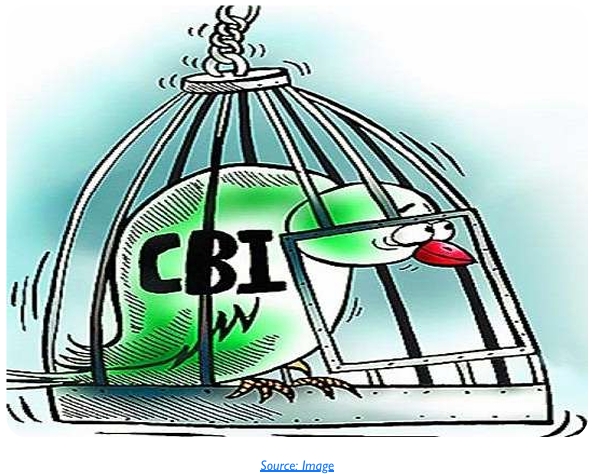
The recent war between the top two officers of the CBI also appeared to be an internal spat, but was actually a direct result of the Modi government first appointing its favoured nominee Alok Verma as the director in January 2017, and then putting his back up by inserting another favourite Rakesh Asthana as his number-two. After the Verma-Asthana fight came out in the open, the government arbitrarily, and illegally, sent both of them on leave, and appointed a third favourite, Nageshwar Rao as the interim director. The whole sorry spectacle exposed the deeply compromised investigation agency. Subsequently, the Supreme Court had to reappoint Verma as the director – but he was again removed by the select panel headed by Modi himself within hours. The CBI’s role as a handmaiden of the central government, its misuse to target opposition parties and political targets, and the concomitant growth of the corruption inside it have destroyed an agency that was supposed to be in the frontline of the fight against corruption in high places. While this hollowing out of CBI has undoubtedly been going on for decades, the Modi government’s usual flagrant interference has led to the ongoing implosion.
CIC and RTI Diluted
In a move to curb the use of Right to Information (RTI) Act to expose government malfeasance, the Modi government has moved amendments to the Act itself, which do away with the present five-year fixed term for information commissioners both at the Central Information Commission (CIC) and State Information Commissions (SICs). The amendments also enable the Centre to prescribe the term of office, salaries and allowances, and other terms and conditions of service of chief information commissioners, and information commissioners at both central and state levels.
In this case, the government has attempted to subvert the RTI Act and its machinery through pushing amendments – a legislative way of curbing transparency and accountability. In the process, the whole mechanism of information commissions will be made dependant on the government, further weakening it. It has also made fresh appointments of commissioners based on its own choice violating set procedures.
CVC Compromised
The Central Vigilance Commission, another statutory body, has been headed by a Modi appointee KV Chowdary since 2015. At the time of his appointment, several eminent persons had raised a red flag saying that there were allegations of his involvement in various criminal/corruption-related cases including the Nira Radia tapes case, the Moin Qureshi case (which involved the present warring CBI officers too), and others. However, the government went ahead with his appointment. The CVC’s role in “sorting out” the ongoing CBI imbroglio is well known. The CVC is the supervisory body for CBI.
State Governors as Trojan Horses
Extending the practice of previous Congress govts., the Modi govt. has not only appointed RSS loyalists as Governors in most states but it is actively using them as its tool to trample democracy. The tussle between the AAP led Delhi government and the Centre has been carried out through the Lt. Governor who is appointed by the Centre. The elected chief minister has not been allowed to govern due to constant obstruction by the Modi govt. In Goa, Manipur, Meghalaya and Karnataka BJP has used Governors to capture power, though in Karnataka the move fell apart after the Supreme Court directed a floor test and BJP’s Yeddyurappa had to quit. Acting in a partisan way, these BJP Governors have opened the path for BJP to form govts. through horse trading, making a mockery of their constitutional authority.
In many other official bodies ranging from the UGC to top officers in research and academic bodies including university appointees like vice chancellors, the Modi government has played fast and loose, freely appointing its own supporters, and thereby tilting the balance in favour of their ideological positions. These appointees have also played an active role in destroying democratic functioning in the institutions they head, as most flagrantly brought out by in the case of JNU and its BJP-supporting VC. This is not just a matter of convenience and patronage. This is a long-term strategic takeover of democratic institutions for spreading the RSS ideology far and wide, beyond the term of the present govt. The other side of the coin is that anybody who objects to either this takeover or to the policies coming out of RSS controlled bodies is branded as ‘anti-national’ and a witch-hunt ensues.

